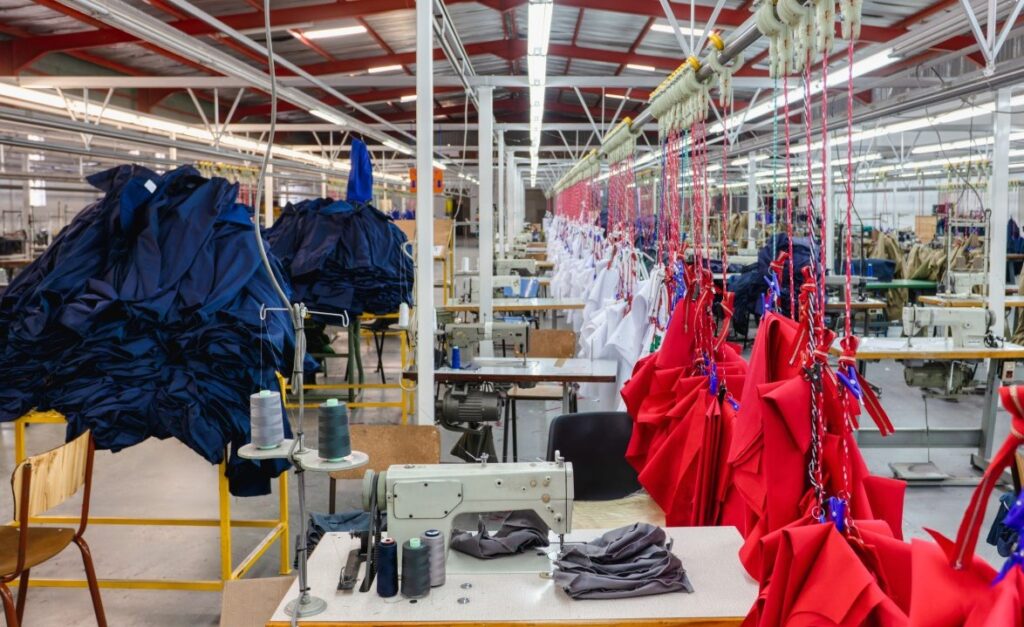Washington, DC — The global trade landscape is full of competing countdown clocks that are quietly challenging U.S. competitiveness as they tick down. In the chaos of today’s trade environment, it’s difficult for American business owners and legislators to know what to address first. But there are two trade agreements whose ringing alarms can no longer be put on snooze.
With the September 30 deadline fast approaching, Congress has less than one month remaining to renew two crucial trade preference programs that it should have renewed long before this urgent countdown began.
For more than 23 years, the African Growth and Opportunity Act (AGOA) has driven a wide variety of U.S./African commercial relationships in sub-Saharan Africa.
Follow us on WhatsApp | LinkedIn for the latest headlines
Failure to act? It will adversely affect more than just the U.S. textile and apparel industry and its more than 3.6 million American workers. If Congress lets AGOA lapse, it sends a powerful message that the U.S. is not willing to prioritize a strong U.S./Africa relationship. As geopolitical tensions stay heated around the world, the robust foreign policy partnership between the U.S. and Africa is an anchor that we shouldn’t squander.
Back when the countdown was 20+ months, we were shouting from the rooftops. We’re now at just 20+ DAYS. We simply cannot afford to overlook an entire continent by looking away and running out the clock.
The obsession with delays and distractions is not fashionable. It’s freezing U.S. companies out from planning, investments in innovation, and talent that America depends on.
With bipartisan support for diversifying out of China, AGOA offers a mutually beneficial trade route that strengthens global partnerships and supports U.S. businesses as a practical alternative. AGOA has a long legacy of bipartisan backing and needs swift renewal to boost certainty.
While Congress has never allowed AGOA to expire at any time during the last two decades, we regrettably see a clear path to expiration now, just when so many other incentivized trading programs have already been stripped from our toolkit.
AGOA supports a growing African cotton and textile industry that would likely disappear if AGOA disappears. Further, Africa’s cotton industry is small, supplying only 10 percent of the cotton yarn and fabric consumed by AGOA apparel manufacturers. That means African apparel manufacturers will depend on imported yarn and fabric for the foreseeable future, creating a steady, and growing, demand for U.S. cotton and textiles.
As Senator Chris Coons and Senator Tim Scott articulated in autumn of 2023, “With effective implementation, AGOA helps to counter the malign influence of China, Russia, and other foreign actors seeking to advance repressive models of governance.” They also advocated for the certainty that the renewal would offer for U.S. companies.
At a time where certainty is scant, AGOA’s renewal is more urgent than ever.
In recent testimony, I provided examples of the real world impact of AGOA:
- Togo: A U.S. company opened a garment factory employing 250 locals (targeting 500). The first shipment left July 5, 2025, with products going to a new U.S. warehouse employing 100 Americans.
- Madagascar: A U.S. apparel company bought land and plans to build a factory this year, shifting 50% of production from Asia.
- Ghana: A U.S. company is the country’s largest private employer (6,000 workers) with another 6,000 jobs coming via a new factory.
- Madagascar & Tanzania: Another U.S. company shifted production from China to Africa in 2007. Now employs 10,000 (mostly women), produces 50 million garments annually, and supports 60,000 U.S. small businesses and 3 million U.S. jobs.
Back in February, I testified on the importance of the Haitian Hemispheric Opportunity through Partnership Encouragement (HOPE) Act and the Haiti Economic Lift Program (HELP) Act. The HOPE/HELP programs, which have long enjoyed bipartisan, bicameral support, allow for duty-free access for certain apparel products from Haiti.
Haiti HOPE/HELP is a key factor in President Trump’s America First Trade Policy by bringing supply chains and manufacturing closer to the U.S. The apparel supply chain supports U.S. cotton and textile exports to Haiti where garments are manufactured. The finished good is sent back to the U.S. market for American consumers.
However, if Haiti HOPE/HELP are not renewed, the apparel sector in Haiti will crumble. Haiti is still grappling with economic instability and gang violence; employment levels are declining rapidly in all sectors. Where we once had over 50,000 jobs in the apparel sector, the employment has been cut drastically. We call on Congress to immediately pass H.R.1625 | S.742, legislation to renew Haiti HOPE/HELP.
Immediate renewal of AGOA and Haiti HOPE/HELP would counteract deepening Chinese and Russian influence across the globe, provide U.S. companies sourcing alternatives to China, support U.S. cotton and textile exports, and promote stability in Sub-Saharan Africa and Haiti. These are bipartisan concerns and goals; urgent AGOA and Haiti HOPE/HELP renewal is a clear, cost-effective, and bipartisan solution.
About the author: Beth Hughes is vice president, trade and customs policy at the American Apparel & Footwear Association, where she oversees AAFA’s Trade Policy Committee and AAFA’s Customs Group. She is also chief spokesperson for the Coalition for Economic Partnership in the Americas (CEPA) launched in November 2021. Follow on LinkedIn & Twitter @BeffRae. The article was previoulsy posted on LinkedIn.


